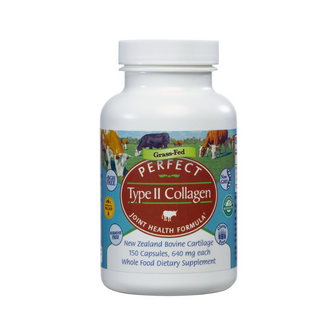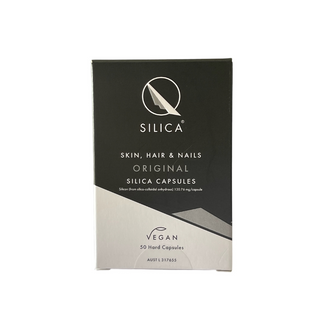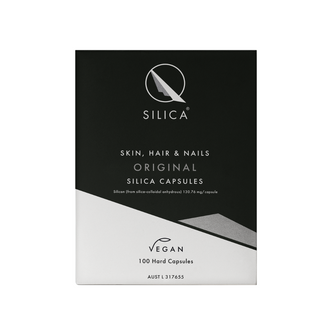As we move through life and we get older, many people experience joint pain and restriction, which can hinder one's ability to live a full and happy life.
There are many factors at play when it comes to joint health and in today's blog article, we hope to shine a light on a few factors that you may wish to further explore? Factors that can potentially help you to live with a higher quality of life.
What Things Affect Our Joints?
Activity/Lack Of Movement
In order to be well and have healthy joints, we need to remain active for our entire lives (we are not meant to be sedentary beings).
Regular movement is good for our muscles and helps to keep joints strong. Even folks with arthritis should still keep moving.
Movement keeps joints working well.
Certain exercises may be more beneficial for some than others - you have to find what is right for you.
I remember years ago, I was involved in a regular Hatha yoga practice where the teacher encouraged us to keep our synovial fluid healthy to keep healthy joints as we age.
The exercises were gentle and simple, they were simply to lay on the floor and rotate our knees (whilst resting out palm on the knee) clockwise and then counter-clockwise.
I have to say, my knees always felt so good after doing this. We did the same exercise with our ankles and wrists.
Walking
Walking is a great exercise for keeping the body and joints healthy and it's so enjoyable!
Regular walking burns calories, strengthens the heart, can help you to lower blood sugar, eases joint pain, boosts immune function, boosts energy, improves mood, extends life, tones your legs, clears your mind and gets you outdoors!
Rebounding
jumping on a mini tramp can be a wonderful, enjoyable and low-impact activity and supports our joint health but also helps to move lymph, improve circulation and can help with weight loss.
I used to have a rebounder and I'm keep to invest in another one but a better one next time. There are many ranging from price and quality but the one that really stands out for me is the Fit Bounce Pro II (available on Amazon). It is certainly pricey but I think you get what you pay for and the reviews in this one are excellent!
Swimming
Swimming is another exercise that is supportive to your joints. It would be preferable to swim in a natural body of water rather than a chlorinated pool as the harmful chemicals are counterproductive to your health and are linked to cancer, endocrine disruption and much more!
A lake, the ocean or a pool that used ozone would be the best options if you enjoy swimming (if you have access to these things of course).
Yoga & Pilates
A regular yoga or pilates practice will improve your flexibility and they are both low-impact exercises/movements so likely they are good for most, just be mindful to choose the right style for you as both pilates and yoga have some more vigorous styles that don't suit everyone!
Yoga: You would be pretty safe with Yin Yoga, Hatha Yoga and even Iyengar Yoga, just be sure that not matter what you choose, to always listen to your own body and never let a teacher push you past your limits, they don't know your body like you do!
Pilates: If you could find a good reformer pilates class and a teacher that is supportive, this can be a very good thing for your flexibility and joints but your confidence too.
Squats & Lunges
When our muscles are strong, this helps to keep the weight off our joints. This is especially so with the thigh muscles.
Squats and lunges can be done anywhere - from home, work, travelling etc. and if you are unsure of correct technique, there are plenty of coaches and teachers on Youtube. Again, remember to listen to your body and never push yourself too far or you may cause an injury.
Arm Weights
Strengthening the muscles in your arms is a good idea too if you want to protect the joints of your wrists, shoulders and elbows.
You can do this by using arm weights and you can do it from home or in a gym setting, it's up to you. Start off with lower weights and work your way up to heavier weights over time.
Stretch
I have to admit, like most people, I don't often stretch (because I'm too busy writing and researching) but I know I need to as I often have tight muscles and get stiff.
Stretching is vital for healthy flexibility and joint wellbeing.
Stretching positively affects the muscles tissue and there are various types of stretching techniques and not all of them are suited to the average person.
There is static, dynamic, PNF and ballistic stretching. Ballistic stretching should be avoided for most people as it puts your joints at risk for damage by causing tears.
This type of stretch (ballistic) is forceful and pushes the joint past its range of movement (ROM).
Ballistic stretching is popular amongst athletes but it may not be suitable for the average person.
Diet
What you eat (and drink) has a huge and I mean HUGE impact on your entire body - including your joints!
Could your dietary choices be causing your joint issues? It is very possible but I am not here to tell you what to do or how to eat, I am simply here to share the information so that you can make the most informed decisions.
There are many foods that cause inflammation or are inflammatory by nature and many foods can also have a negative impact on the gut microbiome (your gut flora community) and this can lead to auto-immune diseases such as RA (Rheumatoid Arthritis and much more!
Some people have had great success with cutting out all carbohydrates (including plants such as vegetables, fruits and salads) but remained healthy with zero nutrient-deficiencies.
When we eat a more animal-based, low-carb diet, we actually don't have the same requirements for certain nutrients (like vitamin C) that we may if we are eating carbs. We certainly need vitamin C and despite popular belief, we actually do find some vitamin C in meat and liver.
I have been deeply researching an animal-based diet and how it positively impacts health and healing and I am currently on the carnivore diet and seeing fantastic results thus far...
Better digestion, no IBS flareups (I've had IBS for over 20 years), still healthy bowel movements, better mood, consistent energy, great clarity of mind and no brain fog like before (unless I skip a a meal), some noticeable weight loss and much more.
I'm not here to convince you of anything nor am I here to influence you to try a carnivore diet (which is really the ultimate elimination diet). I just want to share my experience with you and what I have learned so far. Health is a journey and we are always learning and always evolving.
If you would like to know more about Elimination diets (there are many), you can check out our elimination diet blog article here. The blog briefly discusses the most common elimination diets such as low-FODMAP, AIP, SCD, Whole30, GAPS and of course, the ultimate elimination diet - the Carnivore diet.
Sugar
This would be the one of the first things to go if you want true healing and health. Sugar is highly inflammatory and feeds the pathogenic bacteria in the gut microbiome which can negatively impact our joints and also autoimmune conditions and on and on!
Sugar is everywhere! It is in so many processed foods and occurs naturally in fruit. There is much debate on whether fruit is good or bad? I am somewhat on the fence though since starting a more carnivore diet, I am avoiding fruit and pretty much all plant matter.
If you do a carnivore diet and you also avoid honey and most dairy, this will cut out all the sugar in your diet and you may get rapid healing as you're no longer eating sugar but you are also consuming more nourishing, nutrient-dense animal foods such as meats, eggs, seafood, organs etc.
Despite popular belief, the carnivore diet seems to keep people pretty darn healthy and even long tie carnivores don't seem to be experiencing any kind of nutrient-deficiencies.
This topic is vast and I don't want to get "off topic" here too much. So back to the foods and things to avoid...
Alcohol
Drinking alcohol can absolutely affect your joints. I know from personal experience how alcohol has affected my joints the next day (especially if I drank a little bit more than I should or chose high-sugar alcoholic beverages such as cocktails)!
Alcohol consumption may affect the cartilage - causing it to become thin or even disappear and when this happens the bones will rub against each other and cause pain.
Some people can drink alcohol moderately and have very little issues and others can have just a little and react.
Calcification can also occur due to the insoluble urates (uric acid) formed when alcohol is consumed. This can lead to kidney stones, hypertension, atherosclerosis and more!
Please consume alcohol wisely/mindfully.
Carbs, Gut Flora & How it All Relates
Research has been showing that carbohydrates* can cause many problems for health, such as metabolic disorders and gut microbiome issues.
In a PubMed article (just one of the many sources), it showed the association between a carbohydrate-based diet and health issues such as an increase in:
- Metabolic disorders and Hyperlipidemia
- Visceral fat and serum TG level
- Risk of Crohn's disease and ulcerative Colitis
- Risk of glycemia and insulin resistance
- Risk of pancreatic cancer
*Includes starchy foods, starch, sugar, grains, tubers, etc.
Metabolic disorders can affect the health of our joints in both pain and how they function. To quote Pub Med article:
“Metabolic syndrome and components exacerbate osteoarthritis symptoms of pain, depression and reduced knee function”
Processed Foods & Junk Foods
You don't need me to tell you that eating processed and junk foods is bad for your health but did you know that it may also be bad for your joint health?
These types of 'foods' are highly inflammatory and often contain sugar, vegetable oils and other unsavoury (unhealthy) ingredients that can flare up joint problems as they flare up the gut and immune response.
We wrote an entire article about how vegetable oils may be public health enemy number one, you can read about it here.
Gut Health Relating to Joint Disease
The gut really is the centre of our health for so many reasons so prioritising it is a very wise idea if you want great health and happy joints.
Gut health is a broad term and perhaps confusing to some, so we are going to describe exactly what it means to have a healthy gut.
- Effective digestion and Absorption of Nutrients from Food
- NO Gastrointestinal Illness whatsoever (no frequent bloating, gas, distension, IBS, colitis, Crohn's disease, diverticulitis etc.)
- No problems going to the toilet (no constipation, diarrhoea)
- Healthy Intestinal Flora (microbiome)
- No SIBO, C.diff or Candida infection
- Effective and Healthy Immune Status
- A State of Wellbeing
Unhealthy Gut Flora and How it Relates to Arthritis
Going through my own healing journey with the GAPS diet (now 'No Plants GAPS'/carnivore diet) has inspired me to look even further into how carbohydrates can affect the gut flora, joint health and overall wellbeing.
It's tricky when you go online as there is a sea of conflicting and confusing information (and most sources have their own agenda) so I get that it can e very difficult to know what and who to trust and information changes all the time.
Personally, I trust the creator of the GAPS diet, a doctor and also a mother who figured out how to heal her son's gut and ultimately - his autism. Her name is Dr Natasha Campbell-McBride.
In her popular book 'Gut & Psychology Syndrome' (and recently 'Gut & Physiology Syndrome') on page 124 she discusses how people with abnormal gut flora (many people in society), don't digest carbohydrates very well and how this can lead to toxicity which damages the gut wall leading to leaky gut syndrome.
This leaky gut causes inflammation (chronic), autoimmune problems (like Rheumatoid arthritis) and mental health issues plus a myriad of health issues.
The topic is honestly far too in-depth and goes far beyond the scope of this blog but if this topic interests you, I highly recommend and encourage you to check out Dr Natasha Campbell-McBrides books as mentioned above.
Joint Health Supplements
Ok, so that was a rather long read and I'm sorry (not sorry) but all the info seemed relevant and important to share.
I only just scratched the surface when it comes to diet but in summary, the list would go something like this:
- Avoid sugar (avoid artificial sweeteners as well as these are toxic)
- Avoid simple carbohydrates
- Stay away from processed and junk foods
- Stop using or consuming vegetable oils in any way (no margarine either)
- Reduce or cut out alcohol
Try any of the following joint-support supplements:
JoinTQ
JoinTQ is an all-natural formula with organic black seed oil, glucosamine and curcumin. This trio of ingredients is known to powerfully support joint health because of their antioxidant and anti-inflammatory powers)!
How these can help:
Black seed oil: Prized for its powerful healing and medicinal powers and high antioxidant content. Black seed oil has been shown to be incredibly anti-inflammatory so this may help chronic inflammatory conditions such as RA (Rheumatoid arthritis). The main compound in black seed oil that is anti-inflammatory is TQ (thymoquinone). Thymoquinone/TQ is the chief bioactive constituent of black seed oil.
TQ has also been shown to be anti-cancer as it transforms the cancer signalling pathways.
Glucosamine: One of the main roles of glucosamine is to support healthy cartilage development and glucosamine supplements may protect the joints in two ways;
- Protecting joint tissue
- Preventing cartilage breakdown
The research is not conclusive but anecdotally, many people have had great results with taking glucosamine - especially when combining it with chondroitin (you can find chondriotin naturally in Type II collagen capsules.
Glucosamine sulfate seems to be better absorbed than other forms of glucosamine.
Curcumin: This is the main ingredient in turmeric that the world's been talking about for quite some time now. It's positive health effects have been reported for thousands of years and it's been shown to be anti-inflammatory, antioxidant-rich and an anti-bacterial.
Folks with arthritis and joint issues report relief when including curcumin in their joint wellness regime.
Type II Collagen
As you may know, type II collagen is found in our cartilage and so it's needless to say that taking a type II collagen supplement can help our joints (as we lose collagen when we age).
As we age, we may notice more stiffness and even some pain or restricted movements (if we haven't been looking after ourselves 100%).
There are ways to improve your situation and they are all mentioned in this very article (you're welcome)! 😉
Type II collagen capsules are just one pice of the joint wellbeing puzzle.
The main joint-loving substance found in type II collagen is chondroitin but it also contains the following:
- Proteoglycans
- Glycosaminoglycans
- Trace Minerals
- Bioactive Growth Factors
- Un-denatured Type II Collagen
- And many more micronutrients
The type II supplement is one of our most popular supplements and people really seem to be enjoying the benefits (you can read all of the reviews on the product page). It would pair nicely with the JoinTQ formula and if you were wanting to get optimal benefits and you're not already taking a probiotic, I would suggest the IMUNI Specialised Probiotic as well.
We wrote an entire blog about how Type II collagen can help with joint health, you may like to read it? Click here if you wish to learn more.
Skate Liver Oil
This product is just new to our store but its joint health benefits are certainly worth looking into. Like shark liver oil, skate liver oil also contains chondroitin and this compound has shown great promise for joint wellbeing.
To learn more about skate liver oil, head over to our blog here.
Probiotics
Probiotics can help to repopulate the good bacteria in the gut microbiome and as we've discussed. When we have more pathogenic bacteria in our microbiome, this can lead to gut dysbiosis (severe imbalance of gut bacteria) and an array of health issues, such as autoimmune conditions like RA (rheumatoid arthritis).
We currently stock IMUNI Specialised Probiotic and this is a good one for gut issues like IBS and it is shelf-stable so you don't ever need to keep it in the fridge.
I hope you found today's article and information valuable in some way? Please do share it with anyone who you believe may benefit.
References:
https://www.ncbi.nlm.nih.gov/pmc/articles/PMC3065426/
https://www.ncbi.nlm.nih.gov/pmc/articles/PMC7143995/
https://www.jointhealthmagazine.com/alcohol-detrimental-to-joint-health.html
https://www.foodmatters.com/article/8-ways-to-naturally-keep-your-joints-healthy
https://www.healthline.com/health/food-nutrition/black-seed-oil-benefits
https://www.webmd.com/diet/health-benefits-curcumin
https://www.healthline.com/nutrition/glucosamine
https://www.sciencedirect.com/topics/medicine-and-dentistry/thymoquinone
https://www.jennifermichelle.co/carnivore-diet-rheumatoid-arthritis/
https://examine.com/supplements/glucosamine/research/
https://www.dreliaz.org/2020/12/10-ways-to-have-healthy-joints/
https://www.bioganix.com/blogs/news/benefits-of-stretching-for-joint-health
https://health.clevelandclinic.org/how-to-keep-your-joints-healthy-with-the-right-exercise/
https://www.niams.nih.gov/health-topics/kids/healthy-joints#tab-id-2
Disclaimer: this article is for informational purposes only and not to be taken as advice. It is always recommended to seek professional medical advice from your trusted health practitioner.








